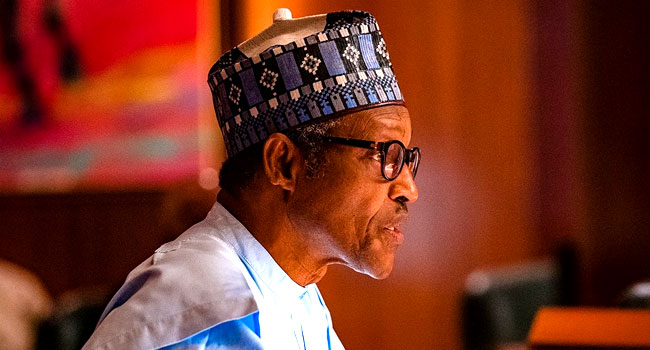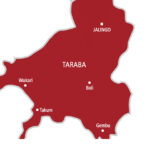I thought I was done with the fuel subsidy palaver. I am sorry to have dragged myself back to it. I should have known that nothing is ever really settled in our country. We are because we dance around issues.
Let me begin this with what we say in Agila when a man faces a catch-22 situation: If you lance the boil on the head of the tortoise, it dies; if you don’t, it dies. Here is a similar dilemma the Buhari administration briefly wrestled with last week. If it removes the fuel subsidy, as it had decided to do from June, we, the people will suffer. The price of petrol will instantly climb beyond N400 per litre; transportation cost and food prices will follow the upward shift. If the government retains the subsidy, we, the people will still suffer because some N3 trillion will be needed to fund the subsidy this year alone. With that chunk of money going into servicing the fuel subsidy regime, other programmes will suffer for lack of funds. You do, trouble; you don’t, trouble. That is the meaning of a dilemma, in case you didn’t know.
That huge amount of money was not captured in the current federal budget. It means the government will resort to the only viable economic management it knows: borrow more money to finance the subsidy and meet its other budgetary ambitions. The national economy already carries a heavy debt burden of N39.6 trillion. By no means a chicken feed, less so in our oil-rich but poor nation.
Piling it on with more loans from China and other do-gooder nations may not bring the economy to its knees but it would make the tough and rough times tougher and rougher. It will deepen the national misery index; something, the government is trying to avoid to make the people happy. Governments are instituted by the people to take the burden of economic and other pressures off them but quite often ironically, governments, pile on the pressure. I can think of no greater dilemma for the country and its political leaders at national and sub-national levels than this.
I have so far written some seven columns on the fuel subsidy palaver, pushing the argument of the IMF, the World Bank and that of the former emir of Kano, Muhammad Sanusi II, that it makes sound economic sense to end it and free the quantum of money spent on it to pursue some critical areas of our national development such as education, health, and infrastructure. There is no contest between cheap fuel and good education, modern health facilities, steady power supply and good roads. President Muhammadu saw the sense in it too. The ground was more or less prepared for him before he assumed the exalted office.
The subsidy scam reached a new, dizzying level in 2011 and 2012 when hordes of politically connected men and women who knew nothing about petroleum products other than that you petrol in your car and diesel in your generator, were given import licences to import fuel. The subsidy climbed up to N1 trillion.
In May 2012, Professor Wole Soyinka and Pastor Tunde Bakare, sensitized the country to the scam, the fraud, and the cover-up in the administration of the subsidy regime that flowered in the Jonathan administration. They organised public protests called Occupy Nigeria at the Freedom Square in Lagos. The army were later called in by the Jonathan administration to disperse them and end the protests. Life returned to normal. But I am sure the protesters succeeded in telling the government this: we dey see una oo.
When Buhari announced the end of the fuel subsidy in 2015, not long after he took up residence in Aso Rock Villa, I thought he was riding with a strong will on the crest wave of the people’s protest to end the scam, the deceit and the scandal and turn the national narrative from cheap fuel to well-funded schools, health services that deliver to the poor and infrastructural development that would end the frustrations of the people with power supply, bad roads, and environmental degradation. I crowed. I crowed prematurely. I munched on my embarrassment that tasted like saw dust.
Sooner after, the Buhari administration began to dance around the fuel subsidy. Buhari found he had taken on a fight he could not win. The fuel subsidy is complex and complicated given the powerful individual and group interests involved it and for whom it must be perpetuated. Unable to come clean on it, the government resorted to some shenanigans bordering on buttered deceit and falsehood by hiding the budget for it under a different sub-head where it believed no one would find out. It was mistaken. The Daily Trust newspaper found out and told the public so. Lies are like onions. They have layers that prevent the seeker of the truth from getting there.
But the federal government has made its Hobson’s choice. It is retaining the subsidy. Buhari has lost the battle to the fuel subsidy cartel, one of the strongest in the land. We have inevitably arrived at a sorry pass. We came to it because no Nigerian president has had the will to take the informed advice of both the IMF and the World Bank as well as other well-informed Nigerians to end fuel subsidy and free the good money wasted on it for infrastructural and other national development projects. There will be stiff prices to pay for the government decision to roll back its own decision.
Fuel subsidy was perhaps instituted with good intentions to make the people enjoy the divine blessings bestowed on their country with the huge hydro-carbon deposits in the Niger Delta region through which petro-Naira flowed into the national confers and fuelled social and economic developments. That objective has been derailed by the powerful interests that cornered the policy and hold the rest of the country to ransom. You touch them. No president wants trouble; therefore, while they railed and rail against it, they leave well alone.
The stout opposition to the removal of subsidy by labour is merely sentimental. The subsidy is not the people’s legal share of the nation’s stupendous petro-wealth. Government will not dare ignore labour for obvious reasons. But believe me, labour has muddled up things. Despite the roll back, the tough times will get tougher and the rough times will get rougher for those whose interest labour believes it is protecting.
The president has made his decision. Still, let us remind him that it often takes the right but unpopular decisions to radically change a nation. The will and the courage to change a nation and the way it does its business, come with a price. A leader must be prepared to pay that price if that is what it takes to effect positive changes and pull the nation out of the morass of its toing and froing in search of a solution in Sokoto, not in its sokoto.

 Join Daily Trust WhatsApp Community For Quick Access To News and Happenings Around You.
Join Daily Trust WhatsApp Community For Quick Access To News and Happenings Around You.


